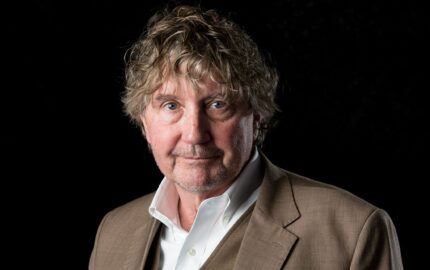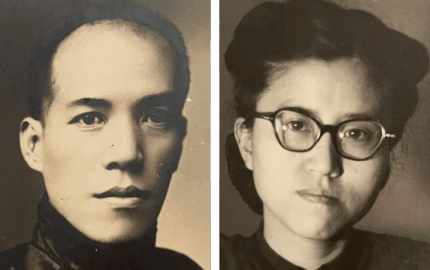CAMBRIDGE, Mass. – The Milwaukee Journal Sentinel has won the Nieman Foundation's 2013 Taylor Family Award for Fairness in Newspapers for Deadly Delays. The comprehensive watchdog investigation reveals how delays in newborn screening programs at hospitals across the country have put babies at risk of disability and death from rare diseases often treatable when caught and treated early.
Two other entries have been selected as finalists for the Taylor Award: America's Worst Charities, a collaboration between the Tampa Bay Times and The Center for Investigative Reporting that exposed the country's 50 worst charities and how they operate, and Trials: A Desperate Fight to Save Kids and Change Science, a six-year investigation by The Wall Street Journal's Amy Dockser Marcus into the lives of families and scientists fighting a rare and fatal genetic disease.
Deadly Delays began when Journal Sentinel reporter Mark Johnson learned about young Colton Hidde, from New London, Wis., who developed serious medical problems soon after he was born in 2012. Although he was screened as a newborn, his blood sample was "batched" and held up for four days before it was sent to a lab for testing. A serious metabolic disease, which could have been easily treated, went undetected. Now more than a year old, Colton's development is delayed and it's unclear if he will fully recover.
As the series developed, reporter Ellen Gabler requested data from all 50 states and the District of Columbia to determine the extent and impact of delayed testing. Although many refused the request for information, she collected data from 3 million newborn screening samples in 26 states. Through sophisticated data analysis, the Journal Sentinel showed that thousands of hospitals and dozens of state agencies that oversee the newborn screening programs are plagued by problems: State guidelines and laws that call for a quick turnaround are ignored or not enforced while regulators provide poor oversight.
Gabler and news applications developer Allan James Vestal created an interactive database that, for the first time, lets readers compare how hospitals perform: read stories of children affected by late tests; learn more about the conditions tested; and locate contact information for officials in every state.
Reporter John Fauber interviewed families, doctors and health officials about labs being closed on weekends and additional problems. Others who contributed to the investigation were photojournalist Kristyna Wentz-Graff, copy editors Jennifer Steele and Karen Samelson, graphics artist Lou Saldivar, designer Nick Lujero and interactive designer Emily Yount.
The investigation has produced important results, from a rewritten federal law, to improved tracking and reporting by health officials in many states, to new safeguards implemented at hospitals. In addition, a number of states are adding weekend lab hours, improving courier services and increasing their tracking and reporting.
Commenting on "Deadly Delays," Taylor Award judge Maria Sacchetti said: "New parents trust that hospitals quickly test their newborn babies for potentially lethal disorders, but this series shows that tens of thousands of blood samples are sent to the laboratory too late, sometimes with tragic results. The reporters could have limited their investigation to their own state, or settled for less detailed data. Instead, they doggedly sought records from hospitals across the country and produced a vivid and heartbreaking series that ultimately could save lives."
Chris Davis, another judge, praised the report as a "sweeping and compelling investigation" and commended the execution by the staff, the scope and ambition of the project and the outrages uncovered by the reporters.
The Taylor Award judges also recognized two finalists:
Tampa Bay Times and The Center for Investigative Reporting for America's Worst Charities
In "America's Worst Charities," reporters set out to investigate the financial records of thousands of charities across the United States, discovering that many collect money that goes not to the needy but to deceptive companies that solicit the funds. The work resulted in the first national database of state regulatory actions against nonprofits and has led to inquiries by charity regulators and a review of charity laws. CNN joined the reporting partnership in March, producing its own stories, which have helped reach an even wider audience on AC 360° and CNN.com.
Taylor judge Sam Roe said: "Many media outlets have written about unscrupulous charities, but this joint project raised the bar to new heights, providing an unprecedented, systemic look at the country's worst nonprofits. Reporters found that over a decade, the worst charities squandered $1 billion in donations, paying professional solicitors up to 95 cents of every dollar donated. The news organizations also distributed postcards with tips, published a downloadable PDF of the worst charities, and developed a web and smartphone app called Charity Checker – impressive outreach that will help level the playing field for everyday donors who want to aid the needy, not professional solicitors."
Judge Patricia Callahan added: "The sweep of the project is impressive. The data entry was time consuming, tedious and admirable. By exposing this playbook and the nonprofits that followed it, the Times and CIR are ensuring that money will go to charities that actually help people."
The team that produced the report included Tampa Bay Times staff writer Kris Hundley with the Times computer assisted reporting specialist Connie Humburg, Web developer Bill Higgins, researcher Caryn Baird, and investigations editor Chris Davis. Team members from The Center for Investigative Reporting were reporter Kendall Taggart; senior online editor Mia Zuckerkandel; CIR engagement manager Cole Goins; and CIR editorial director Mark Katches.
The Wall Street Journal for Trials: A Desperate Fight to Save Kids and Change Science
For six years, The Wall Street Journal's Amy Dockser Marcus followed a group of parents and scientists seeking a treatment for Niemann-Pick Type C, a rare and fatal genetic disorder that strikes primarily children. The narrative follows the difficult, often heartbreaking journey that individuals and institutions take while investigating rare illnesses. The online presentation prepared by Dockser Marcus and her colleagues at the Journal includes videos, photographs, animated graphics, original artwork and living portraits to round out the story.
Judge Sam Roe noted: "'Trials' is an exquisitely told narrative about one of the worst things that could happen to a parent: They discover that their children have a fatal genetic disease, and the illness is so rare that scientists, regulators and drugmakers have little incentive to find a cure. Wall Street Journal reporter Amy Dockser Marcus spent six years chronicling the despair and frustrations of such families, along with the mixed emotions of the scientists who wanted to help but weren't sure how. 'Trials' is powerful and riveting, sophisticated and enlightening, touching and surprising. This is simply one of the most ambitious, impressive pieces of journalism in recent years, one that is hard to put down and harder to forget."
The judges for the 2013 Taylor Award were Chicago Tribune investigative reporters Sam Roe and Patricia Callahan, winners of the 2012 Taylor Award for Playing with Fire; Boston Globe reporter Maria Sacchetti, a 2012 Taylor Award finalist for Justice in the Shadows; and Tampa Bay Times investigative editor Chris Davis, a 2012 Taylor Award finalist for Stand Your Ground.
Roe and Callahan recused themselves from judging "Deadly Delays." Chris Davis recused himself from judging "America's Worst Charities."
The Taylor Award ceremony will be held on March 12, 2014 at the Nieman Foundation for Journalism at Harvard in Cambridge, Mass. The Taylor honor includes a $10,000 prize for the winner and $1,000 each for the two finalists. The award program was established through gifts for an endowment by members of the Taylor family, who published The Boston Globe from 1872 to 1999. The purpose of the award is to encourage fairness in news coverage by America's daily newspapers.
The Nieman Foundation for Journalism at Harvard educates leaders in journalism and elevates the standards of the profession through special programs that convene scholars and experts in all fields. More than 1,400 accomplished and promising journalists from 92 countries have been awarded Nieman Fellowships since 1938. The foundation's other initiatives include Nieman Reports, a quarterly print and online magazine that explores contemporary challenges and opportunities in journalism; the Nieman Journalism Lab, a website that reports on the future of news, innovation and best practices in the digital media age; and Nieman Storyboard, a website that showcases exceptional narrative journalism and explores the future of nonfiction storytelling.
Two other entries have been selected as finalists for the Taylor Award: America's Worst Charities, a collaboration between the Tampa Bay Times and The Center for Investigative Reporting that exposed the country's 50 worst charities and how they operate, and Trials: A Desperate Fight to Save Kids and Change Science, a six-year investigation by The Wall Street Journal's Amy Dockser Marcus into the lives of families and scientists fighting a rare and fatal genetic disease.
Deadly Delays began when Journal Sentinel reporter Mark Johnson learned about young Colton Hidde, from New London, Wis., who developed serious medical problems soon after he was born in 2012. Although he was screened as a newborn, his blood sample was "batched" and held up for four days before it was sent to a lab for testing. A serious metabolic disease, which could have been easily treated, went undetected. Now more than a year old, Colton's development is delayed and it's unclear if he will fully recover.
As the series developed, reporter Ellen Gabler requested data from all 50 states and the District of Columbia to determine the extent and impact of delayed testing. Although many refused the request for information, she collected data from 3 million newborn screening samples in 26 states. Through sophisticated data analysis, the Journal Sentinel showed that thousands of hospitals and dozens of state agencies that oversee the newborn screening programs are plagued by problems: State guidelines and laws that call for a quick turnaround are ignored or not enforced while regulators provide poor oversight.
Gabler and news applications developer Allan James Vestal created an interactive database that, for the first time, lets readers compare how hospitals perform: read stories of children affected by late tests; learn more about the conditions tested; and locate contact information for officials in every state.
Reporter John Fauber interviewed families, doctors and health officials about labs being closed on weekends and additional problems. Others who contributed to the investigation were photojournalist Kristyna Wentz-Graff, copy editors Jennifer Steele and Karen Samelson, graphics artist Lou Saldivar, designer Nick Lujero and interactive designer Emily Yount.
The investigation has produced important results, from a rewritten federal law, to improved tracking and reporting by health officials in many states, to new safeguards implemented at hospitals. In addition, a number of states are adding weekend lab hours, improving courier services and increasing their tracking and reporting.
Commenting on "Deadly Delays," Taylor Award judge Maria Sacchetti said: "New parents trust that hospitals quickly test their newborn babies for potentially lethal disorders, but this series shows that tens of thousands of blood samples are sent to the laboratory too late, sometimes with tragic results. The reporters could have limited their investigation to their own state, or settled for less detailed data. Instead, they doggedly sought records from hospitals across the country and produced a vivid and heartbreaking series that ultimately could save lives."
Chris Davis, another judge, praised the report as a "sweeping and compelling investigation" and commended the execution by the staff, the scope and ambition of the project and the outrages uncovered by the reporters.
The Taylor Award judges also recognized two finalists:
Tampa Bay Times and The Center for Investigative Reporting for America's Worst Charities
In "America's Worst Charities," reporters set out to investigate the financial records of thousands of charities across the United States, discovering that many collect money that goes not to the needy but to deceptive companies that solicit the funds. The work resulted in the first national database of state regulatory actions against nonprofits and has led to inquiries by charity regulators and a review of charity laws. CNN joined the reporting partnership in March, producing its own stories, which have helped reach an even wider audience on AC 360° and CNN.com.
Taylor judge Sam Roe said: "Many media outlets have written about unscrupulous charities, but this joint project raised the bar to new heights, providing an unprecedented, systemic look at the country's worst nonprofits. Reporters found that over a decade, the worst charities squandered $1 billion in donations, paying professional solicitors up to 95 cents of every dollar donated. The news organizations also distributed postcards with tips, published a downloadable PDF of the worst charities, and developed a web and smartphone app called Charity Checker – impressive outreach that will help level the playing field for everyday donors who want to aid the needy, not professional solicitors."
Judge Patricia Callahan added: "The sweep of the project is impressive. The data entry was time consuming, tedious and admirable. By exposing this playbook and the nonprofits that followed it, the Times and CIR are ensuring that money will go to charities that actually help people."
The team that produced the report included Tampa Bay Times staff writer Kris Hundley with the Times computer assisted reporting specialist Connie Humburg, Web developer Bill Higgins, researcher Caryn Baird, and investigations editor Chris Davis. Team members from The Center for Investigative Reporting were reporter Kendall Taggart; senior online editor Mia Zuckerkandel; CIR engagement manager Cole Goins; and CIR editorial director Mark Katches.
The Wall Street Journal for Trials: A Desperate Fight to Save Kids and Change Science
For six years, The Wall Street Journal's Amy Dockser Marcus followed a group of parents and scientists seeking a treatment for Niemann-Pick Type C, a rare and fatal genetic disorder that strikes primarily children. The narrative follows the difficult, often heartbreaking journey that individuals and institutions take while investigating rare illnesses. The online presentation prepared by Dockser Marcus and her colleagues at the Journal includes videos, photographs, animated graphics, original artwork and living portraits to round out the story.
Judge Sam Roe noted: "'Trials' is an exquisitely told narrative about one of the worst things that could happen to a parent: They discover that their children have a fatal genetic disease, and the illness is so rare that scientists, regulators and drugmakers have little incentive to find a cure. Wall Street Journal reporter Amy Dockser Marcus spent six years chronicling the despair and frustrations of such families, along with the mixed emotions of the scientists who wanted to help but weren't sure how. 'Trials' is powerful and riveting, sophisticated and enlightening, touching and surprising. This is simply one of the most ambitious, impressive pieces of journalism in recent years, one that is hard to put down and harder to forget."
The judges for the 2013 Taylor Award were Chicago Tribune investigative reporters Sam Roe and Patricia Callahan, winners of the 2012 Taylor Award for Playing with Fire; Boston Globe reporter Maria Sacchetti, a 2012 Taylor Award finalist for Justice in the Shadows; and Tampa Bay Times investigative editor Chris Davis, a 2012 Taylor Award finalist for Stand Your Ground.
Roe and Callahan recused themselves from judging "Deadly Delays." Chris Davis recused himself from judging "America's Worst Charities."
The Taylor Award ceremony will be held on March 12, 2014 at the Nieman Foundation for Journalism at Harvard in Cambridge, Mass. The Taylor honor includes a $10,000 prize for the winner and $1,000 each for the two finalists. The award program was established through gifts for an endowment by members of the Taylor family, who published The Boston Globe from 1872 to 1999. The purpose of the award is to encourage fairness in news coverage by America's daily newspapers.
The Nieman Foundation for Journalism at Harvard educates leaders in journalism and elevates the standards of the profession through special programs that convene scholars and experts in all fields. More than 1,400 accomplished and promising journalists from 92 countries have been awarded Nieman Fellowships since 1938. The foundation's other initiatives include Nieman Reports, a quarterly print and online magazine that explores contemporary challenges and opportunities in journalism; the Nieman Journalism Lab, a website that reports on the future of news, innovation and best practices in the digital media age; and Nieman Storyboard, a website that showcases exceptional narrative journalism and explores the future of nonfiction storytelling.


